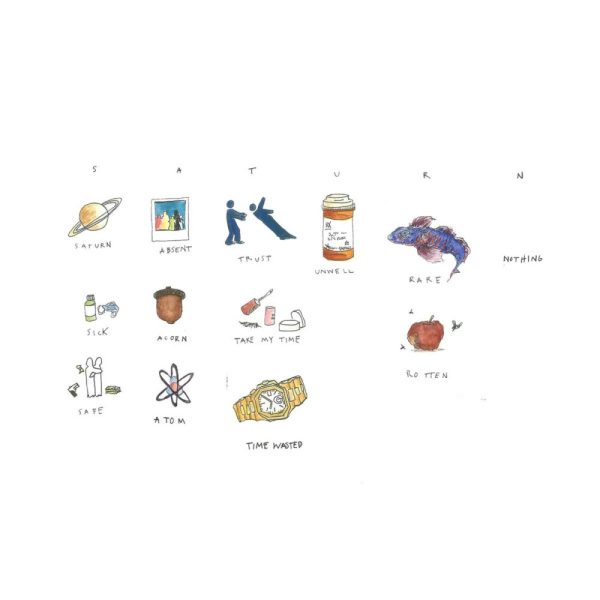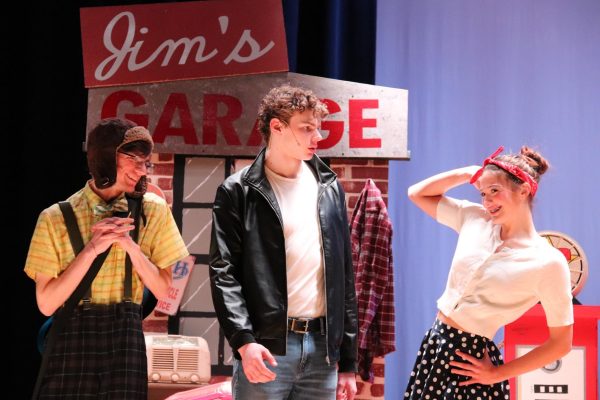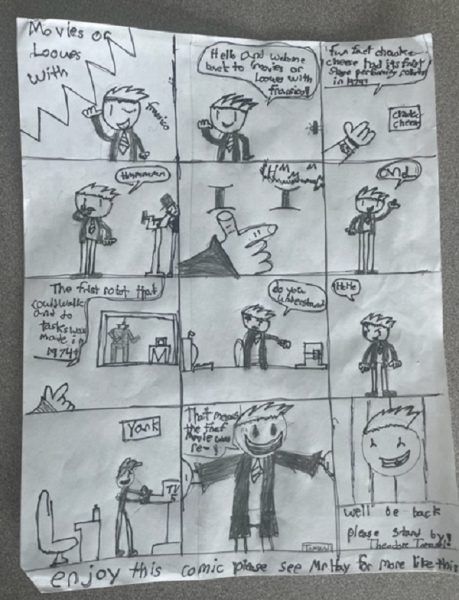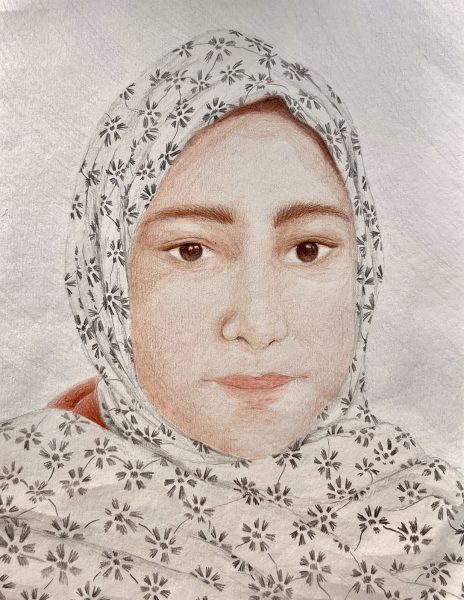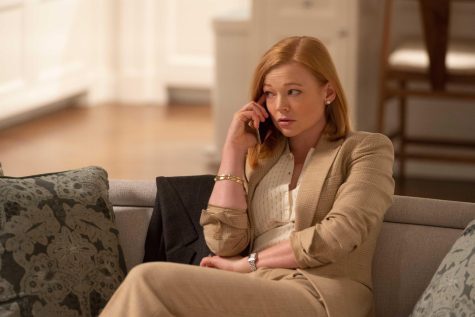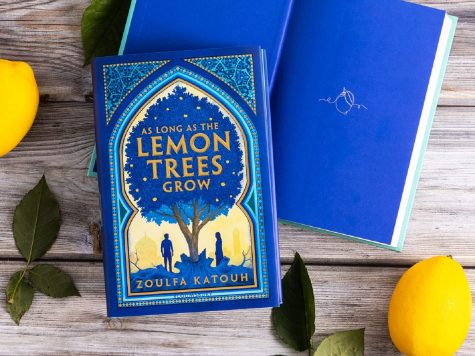Chappie Movie Review
March 17, 2015
With Chappie, director Neill Blomkamp returns to a futuristic South African setting of Johannesburg, just like with his hugely successful debut movie, District 9. This time the country’s law and order is upheld by a police force of robots with artificial intelligence, called Scouts.
The plot unfolds in the near-future In 2016 Johannesburg, a weapons manufacturer called Tetra Vaal Industries has successfully equipped the city with the world’s first all-robot police force.The world is generally content with this development. Crime has plummeted, and the titanium-clad robots ably shield human officers from harm.
Near the beginning of the movie the scouts creator, an idealistic young engineer named Deon Wilson (Dev Patel), is attempting to develop a true artificial intelligence for his creations . He devises a program to instill consciousness in his robots, but when his profit-fixated boss Michelle Bradley (Sigourney Weaver) , forbids him from installing the software,he goes against her wishes and steals a severely damaged police scout set to be scraped, and succeeds in implanting consciousness, only to have the experimental machine which has the mind of an infant, kidnapped by “Ninja” Watkin Tudor Jones and Yo-landi Visser, who are cast as criminal versions of themselves.
The rest of the film is basically Die Antwoord (“The Answer” in Afrikaans) raising a child like robot and teaching it about the world. Your tolerance for the movie will depend on how much that appeals to you, which probably explains the lousy reviews.The sequences between Chappie, Ninja, and Yo-landi are filled with humor and a warped kind of sweetness; they’re absurd and sometimes jarring given the film’s attempt to squeeze in some high-minded ideas about morality
and consciousness, but it works.
Chappie grows up in a harsh environment dominated by foster parents who are ill-suited to the responsibility of raising a child. Deon’s grand, idealistic plans to rear Chappie on a steady diet of poetry and fine art go sour when a group of South African gangsters Ninja and Yo-landi as Die Antwoord, plus Jose Pablo Cantillo as America, kidnap Deon and forcibly adopt Chappie. In the opening action sequence between the group and the South African police, the film explains how the gang owes a local Druglord, Hippo $20,000,000 or he will have them killed, for a job they botched. The group lands upon the brilliant idea that Deon might have a “remote control” as Ninja put it, for turning the droids off during a grand heist, after they Kidnap Deon and he says that’s impossible, they take Chappie for their personal bodyguard instead.
Deon wants to raise Chappie to read and paint, while Ninja insists he learn how to walk with swagger, swear, shoot and be “Robot Gangsta #1!”. Their polarized educational messaging, moreover, has some severe consequences. Deon makes Chappie promise he will realize his full potential and never shoot a gun or commit a crime.While Ninja convinces him that throwing switchblades into people’s necks just puts them to sleep and That its it okay to jack someones car because they stole them from Chappie’s “Daddy” Ninja.
Ninja’s idea of a good lesson-plan to toughen Chappie up is dropping him off in the middle of the crime ridden slums and let him find his way home. After being set upon by locals who first fear him because he looks like a “Scout” robot, then stone him and set him on fire when they realize he’s vulnerable and afraid, the torched and wounded Chappie escapes and briefly bonds with a pitiful stray dog. Before eventually stumbling home, short an arm.
Die Antwoord brings garish countercultural to Chappie, coloring the gangland underground of the film’s version of Johannesburg with hot-pink sub machine guns, bold haircuts and Zef.
The home that Chappie grows up in is an abandoned warehouse furnished in Ninja’s graffiti, bling, and mouldering domestic appliances, an aesthetic inspired by the rave motifs of Die Antwoord’s music videos and Zef style. The cinematography, too, looks at times like it was ripped straight from a Die Antwoord video, particularly in Chappie’s angsty teenage phase, when he’s trying to hang with America and Ninja, while also hung up on the morals that his Master instilled in his young mind. Meanwhile Vincent (Hugh Jackman) an ex-soldier turned engineer, Deon’s rival at Tetra Vaal. learns of what Deon has done in creating Chappie and sets out to destroy him and the rest of the Scout police force, which he considers an abomination. He hopes this will lead to the adoption of his creation “The Moose” he’s developed, each of which would be controlled at all times via remote by a human operator. Vincent isn’t a big fan of Deon’s work as The Moose is seen as unnecessary expensive overkill to fund, due to the success of the automated Scout police force.
Chappie is meant to inspire questions about what it means to be human, watching Chappie go from what is essentially infancy to adolescence is fascinating. Though impressionable, he is innocent despite being reared in seedy criminal environment. He brings out the maternal nature in Yo-landi who Chappie believes is his “Mommy” almost overnight, which is hard to buy. But we do believe in Chappie. As he struggles to do the right thing, he’s on his way to becoming wiser than humans. The film raises issues of nature vs. nurture, as much as it explores the notion of artificial intelligence. It also delves into the human inclination to manipulate and corrupt
innocents.
The film becomes an exploration of what it means to be alive, and what makes us human. Solid laughs are earned from Chappie’s early naivety, his willingness to believe all that the hapless criminals have to teach him. Adopting the swagger and language of a Johannesburg street thug.
But after only a few days of existence, Chappie poses an existential question that human beings don’t usually confront until they’re many years old, Why would his maker give him a body that’s predestined to die? saying, “Why do human beings lie so much?” to his Maker, Deon
Because of damage suffered while he was a police Scout, Chappie’s battery is fused to his abdomen and can’t be changed. His life, therefore, will be finite, no more than five days. And so he’s soon wondering about the meaning of life and the seeming cruelty of his existence. Deon doesn’t have the answers, but he encourages Chappie to explore his own mind and capabilities, even in the short time he has left. Yo-Landi tells him there is no death, and that “what’s inside” him will simply goes on “to another place,” when his body expires. But Ninja teaches Chappie his grim perspective of the world, pointing out two pit-bulls after a dogfight, one alive and one dead, he says Chappie has the choice of which one he’d rather be. Chappie mourns over the dead dog but admits it’s better to be the “killer” dog that stays alive. Teaching Chappie to be a killer, one way or another.
But In the end, Chappie rejects much of what he’s been taught about the life, death, and the afterlife, deciding that maybe he doesn’t have to be either a live dog or a dead dog. He sets his sights on another, technology-driven way that also doesn’t involve the hollow end of Heaven. He amends his mother’s instruction, “You go to another place,” with his own injunction to fight it out here on Earth “Don’t go to another place!” Chappie’s a movie for people who care, Many aren’t going to like the messages in the movie. Instead of a thrill ride, you get a look into humanity’s baser instincts, its own deep need to find meaning in life, and a serious look at how we can be families in a non-traditional sense, and still fulfill the ideal that is what we call family.
The most interesting thing about Chappie is Blomkamp’s choice to cast South African music duo Die Antwoord, whose members, Ninja and Yo-Landi Vi$$er, essentially are cast as themselves. Ninja and Yo-landi are long time fans of Blomkamp’s films (they both have D9 for District 9 tattooed on the inside of their lips), Blomkamp first made contact with the rap duo after the artists first music video “Enter The Ninja” went viral in 2009.
They have leading roles and fill significant portions of screen time and influence the film’s tone, Their music makes up the majority of the movies soundtrack. Their real-life musical and fashion aesthetic is dubbed “Zef,” a lurid form of South African rave-rap that has grown from the ramshackle Afrikaans suburbs of Cape Town. The word Zef is an Afrikaans(one of South Africas 11 national languages) slang word, which roughly translates to the English word , common. Die Antwoord’s musical and visual style incorporates elements of Zef culture, described as modern and trashy, appropriating out-of-date, discarded cultural elements. Yo-Landi said, “It’s associated with people who soup their cars up and rock gold and [Explicit]. Zef is, you’re poor but you’re fancy. You’re poor but you’re sexy, you’ve got style.” Their lyrics are performed in Afrikaans, Xhosa, Zulu and English. Their music videos have often incorporated artwork by the noted photographer Roger Ballen.
Die Antwoord’s lead vocalist, Ninja, has been part of the South African Rap scene for many years, fronting acts such as Max Normal, Watkin Tudor Jones, The Original Evergreen, The Constructus Corporation and most recently MaxNormal.TV. Ninja told Rolling Stone, “Everything I did before Die Antwoord was me experimenting, messing around and trying to find Die Antwoord . . . everything before it was disposable. It was all throwaway.” Die Antwoord observed that journalists and critics, particularly in the United States, frequently ask if their creative output is a joke or a hoax. When asked if he was playing a character, Ninja said, “Ninja is, how can I say, like Superman is to Clark Kent. The only difference is I don’t take off this [Explicit] Superman suit.” They have described their work as “Documentary Fiction” and “Exaggerated Experience” designed for shock value. Their Song “Fok Julle Naaiers” is a response to this speculation.
Ninja told Spin ,People are unconscious, and you have to use your art as a shock machine to wake them up. Some people are too far gone. They’ll just keep asking, “Is it real? Is it real?” That’s dwanky. That’s a word we have in South Africa, “Dwanky.” It’s like lame. “Is it real?” You have to be futuristic and carry on. You gotta be a good guide to help people get away from dull experience. Blomkamp was supposedly listening to Die Antwoord’s music when the vision for “Chappie” began to emerge, “There was this really weird crossover that happened while I was writing Elysium—and Elysium has a lot of robotics in it—at the same time I was listening to a lot of Die Antwoord’s tracks. All of a sudden I got this idea for this robot—like the Elysium robots, it was a kind of police/security machine—being hijacked by this band that I was listening to. I don’t know where the hell that idea came from, but that was the genesis for Chappie.” David Fincher originally tried to cast Yo-landi Visser as the lead role in the English-language version of Girl With a Dragon Tattoo but was turned down by Visser,who preferred to work with Blomkamp.
Though the film led the box office for its opening weekend The critics were not kind to this film. “Die Antwoord better not quit their day jobs” was the headline in the Washington Post.
I personally found the scenes with the Zef stars Ninja and Yo-landi Fantastic, but I couldn’t imagine what the movie would look like to those unfamiliar with the group’s personal brand and quirks. A fan of Blomkamp’s other films hoping to be blown away by another sci-fi dystopian powerhouse like District 9 might come to see a his latest film and then spend two hours watching two skinny freaks with bad haircuts telling a robot child to steal cars.
I would recommend listening to Die Antwoord’s albums Donker Mag(2014), $0$(2009), Ten$ion(2012) from thier previous project MaxNormal.TV Good Morning South Africa(2008) and Ninja’s solo album’s Watkin Tudor Jones Memoirs Of A Clone(2001) , Max Normal Songs From The Mall (2001).

